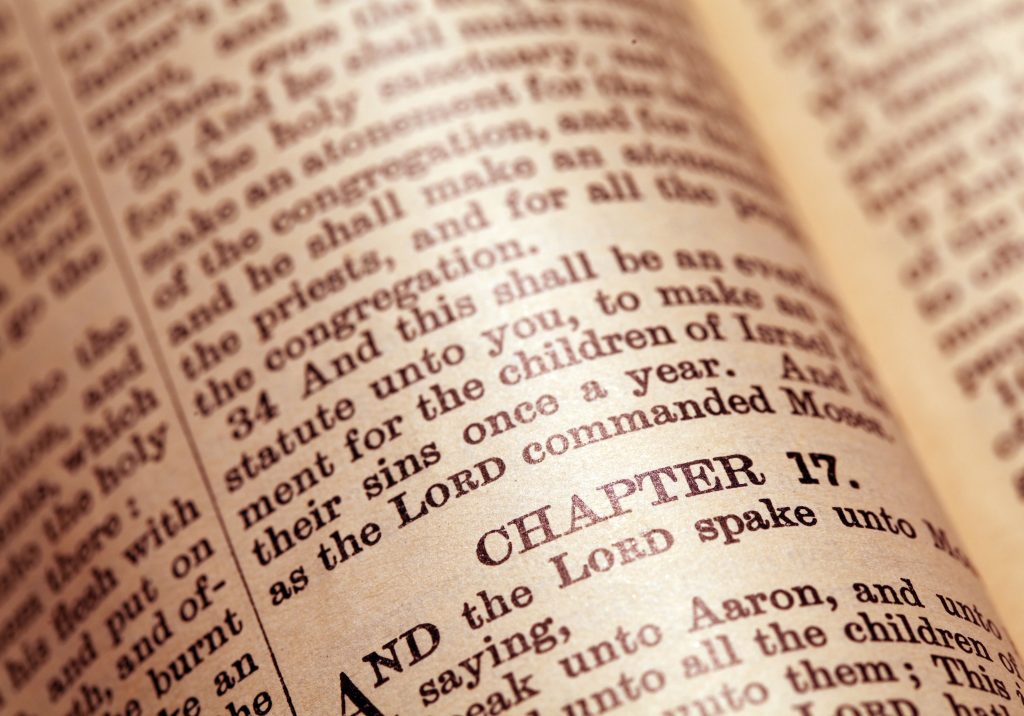Father Henri Nouwen, reflecting on prayer in his book “Clowning in Rome,” offered this insight: “To pray unceasingly means to think and live in the presence of love.” The Liturgy of the Word at Mass is a prayer of listening, thinking, living and resting in the presence of God-love.
In the proclamation of God’s Word, the community receives God as Word. We are enveloped by the power of that Word to hold us together as one people. We are a Church formed by a Word that has remained strong throughout human existence since the time of the Hebrew people.
Moses came down from Mount Sinai with the tablets inscribed with words — words that formed a people in God. They gave up worshiping false idols and became a people who worshiped the one God revealed through that Word. We inherit this way of knowing God through God’s Word from our Jewish sisters and brothers. The Liturgy of the Word in the Mass is not public reading or public speaking. It is a proclaiming of God as present in this Word by which we are made one people. It is less a lesson about God, and more of an experience of God. It is one of the primary ways that we come to know the one God that we worship.
Furthermore, we are a people of a new covenant in and through Jesus Christ. We are the continuation of the story of all those followers over the centuries who gathered in the name of Christ to hear the Word of the new covenant proclaimed. In every generation, Christians have proclaimed God’s Word, and we, too, proclaim and receive the Word so that no one will forget the message of Jesus Christ. We keep the story of salvation in Christ alive for the world.
To prepare this ritual of proclaiming and receiving God’s Word so that it has the potential to continually transforms our lives, just as the Eucharist does, our parish lectors (and by this term we include Gospel proclaimers) need effective training. This is a specialized sort of training. Those who feel called to this ministry need to learn and grow in unceasing prayer, or what Henri Nouwen, as mentioned above, calls “thinking and living in the presence of love.”
What they do, they do on behalf of their community. It is an act of service. The Word proclaimed calls us to the mystery of God present in our lives. Lectors need to live their lives in God’s truth. They cannot proclaim what they do not know. They need to immerse themselves in the mystery. The ordinary pew-dweller will find an intuitive connection with a lector who proclaims with an authentic awareness of God. Whereas, a lector who is simply going through the motions, whether for lack of training or lack of preparation time has left too much to chance.
All lectors need to be fully aware of their responsibility on behalf of the community. After basic training, ongoing formation in their ministry is also required. No one working in any ministerial role is ever fully formed. The mystery of God is too vast to ever exhaust that journey! Leadership in liturgical ministry carries the responsibility of this continual searching.
A servant-leader cannot pass on what they do not carry within their own spirit. Each parish liturgy committee is responsible to keep all their ministers working and growing together. To assist parishes in this work, basic lector training and ongoing formation are offered on a regular basis by our archdiocesan Office for Worship. You can find that information on our website at laliturgy.org.
The second element of the Liturgy of the Word that can influence the way the assembly experiences God’s presence in the Word proclaimed is through shared silence. The prophet Isaiah says, “Be still and know that I am God.” Through shared silence we can better know our oneness in God. We can listen, think, live and rest in God-love as one body in Christ.
The General Instruction of the Roman Missal recommends silence after the First Reading, after the Second Reading and after the Homily. The amount of time spent in silence at each of these moments should come from the reflection and observation of the members of the parish liturgy committee. This time of silence can grow over the years as the community together enters more deeply into the mystery of God and the mystery of their oneness in Christ.
Next week: The Universal Prayers or Prayers of the Faithful.

